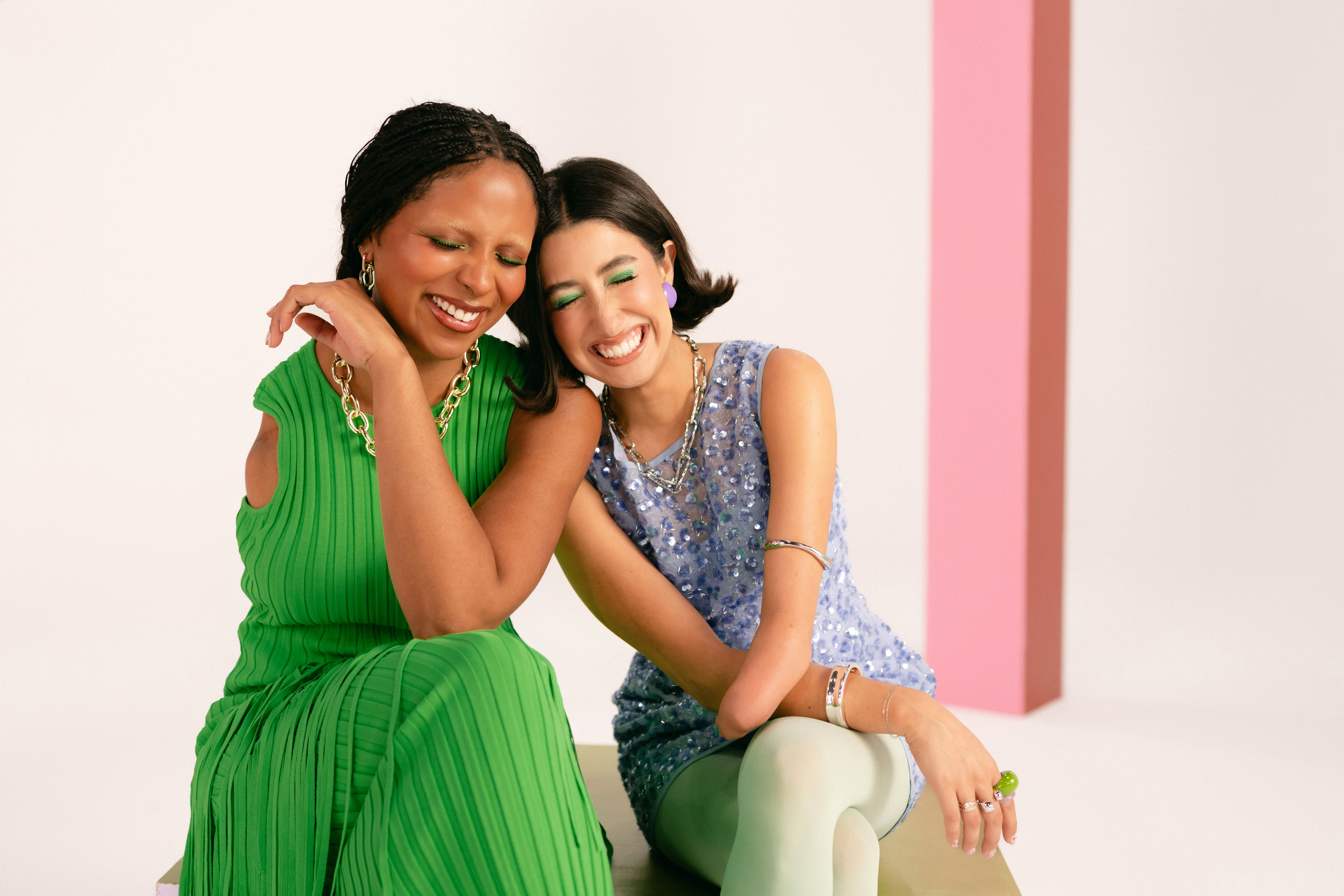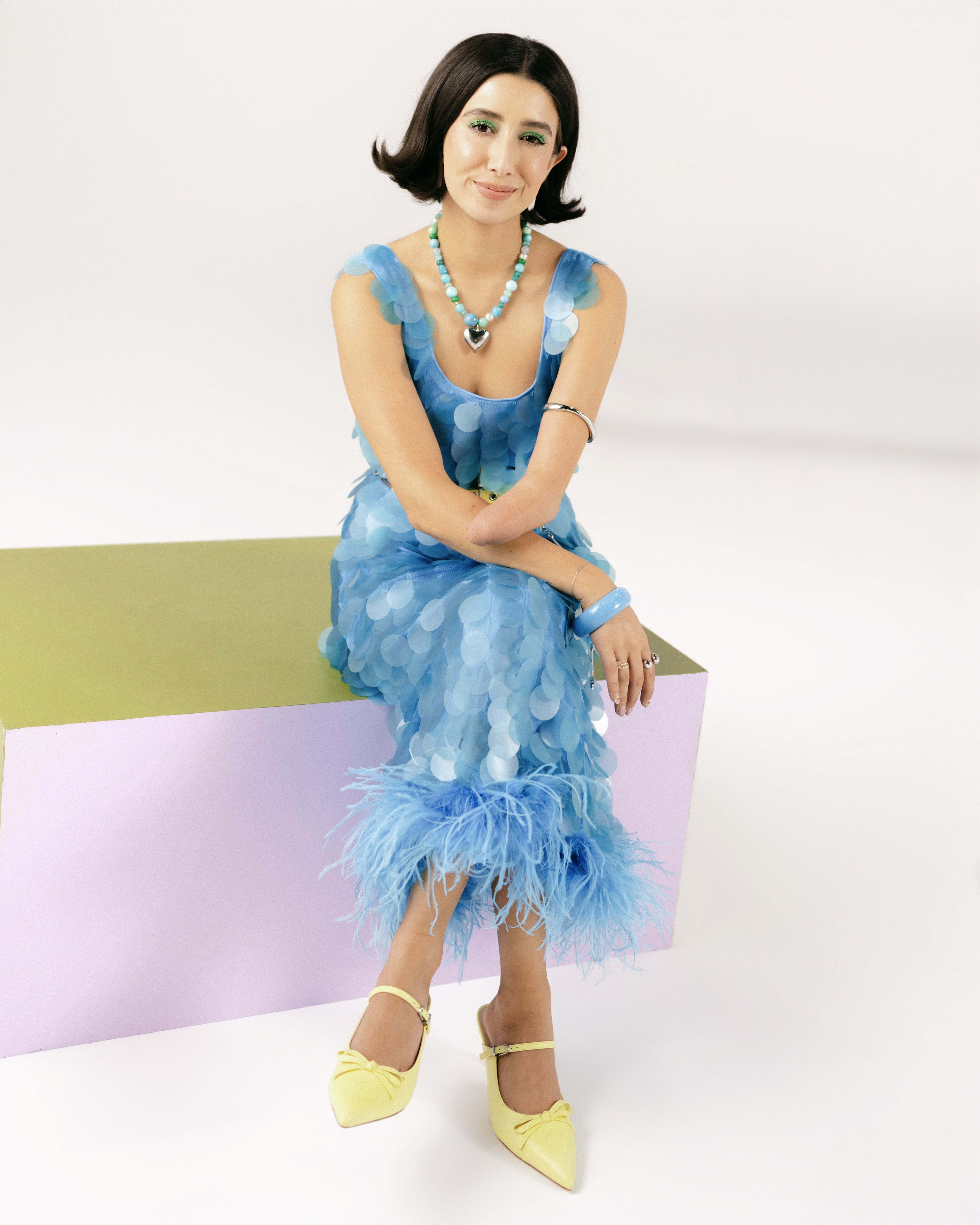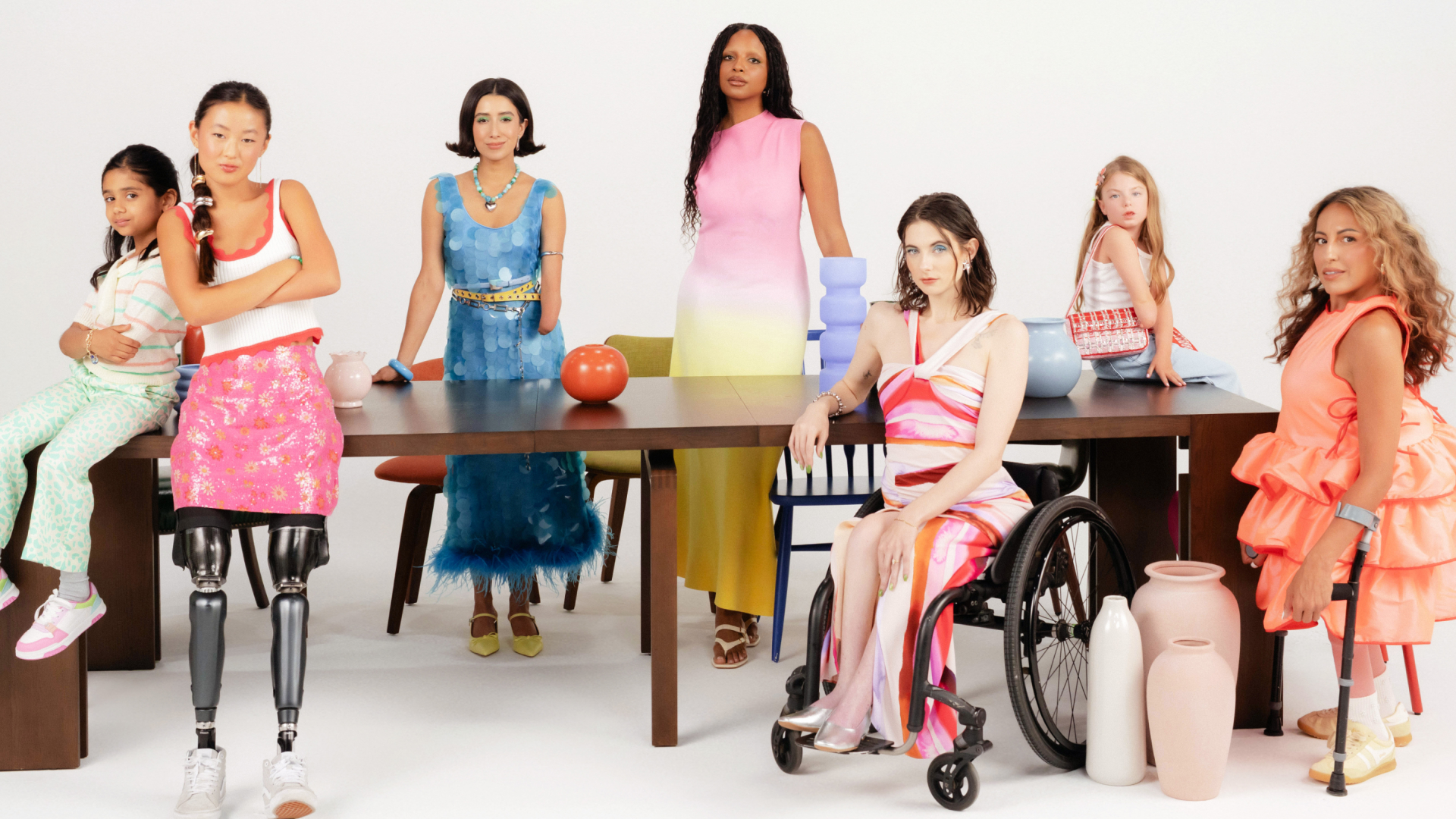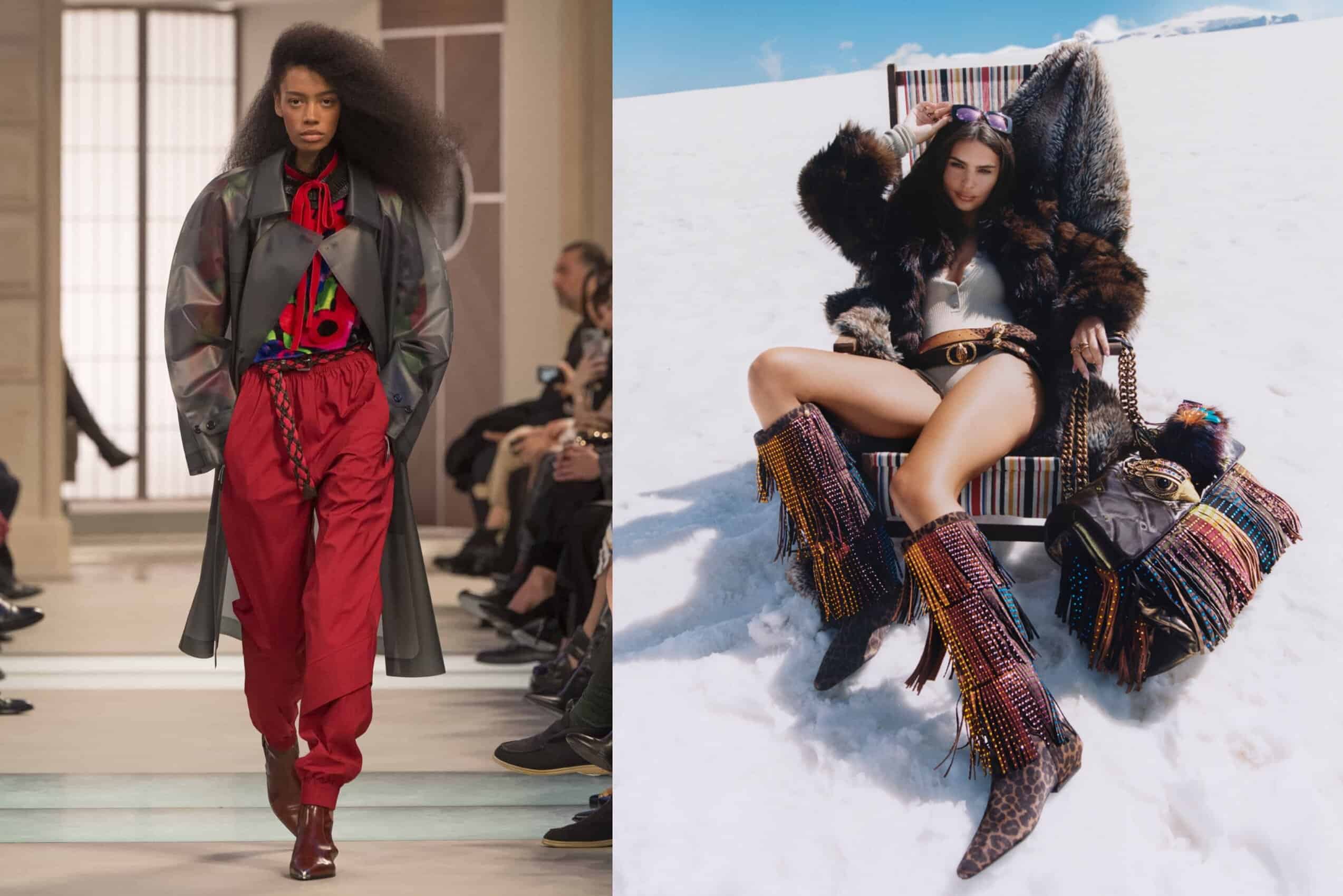As a disabled woman, the world can often feel like an inaccessible and hostile place. For example, I’ve been made to feel like an inconvenience at concerts where accessibility was promised, and called ableist slurs for suggesting people with mobility issues should be able to attend large-scale events. As a result, I’m seriously excited about the launch of Disabled&, an organization dedicated to ensuring disabled people are not only welcome but celebrated.
Disabled& was founded by April Lockhart, a content creator and self-described “disabled fashion girlie.” A recipient of Forbes‘s 30 Under 30 in 2025 for her impact on social media, Lockhart—who lives with a limb difference—saw the value in bringing disabled creatives together and connecting them with brands, companies, and one another.
“We saw a burst of disability inclusion in media a few years ago, but it’s been fading,” Lockhart tells Marie Claire. “Disabled& is about keeping that energy alive by giving disabled creatives a space to connect, swap ideas, support each other’s businesses, and just feel less alone.”
Lockhart in campaign imagery for Disabled&.
(Image credit: Jessica Steddom)
With Disabled&, Lockhart is creating a space for “community-driven events”—including everything from “an intimate dinner with new friends” to “swapping insight with fellow entrepreneurs”—all with disabled people placed firmly at the center. “Everything from panels to bigger workshops, pop-ups” and conferences are in the organization’s future, Lockhart says.
Several Disabled& events are already planned for 2025, including a New York Fashion Week pop-up for disabled creatives and a “Disabled Fashion Girlie Retreat” in Nashville this fall. Regarding the latter, Lockhart explains, “Picture a group of like-minded creatives coming together to talk about our passion projects and businesses, share resources, network in a way that actually feels fun, and genuinely help each other.”
While Disabled& might seem like a natural expansion of the advocacy work Lockhart was already doing within the fashion industry, the content creator was actually inspired to found the community after moving outside of her own comfort zone.

Lockhart in campaign imagery for Disabled&.
(Image credit: Jessica Steddom)
“Just two years ago was the first time I’d ever been in a room with more than a handful of other people with disabilities,” Lockhart tells Marie Claire. “It refreshed and invigorated me in ways that I processed for weeks—I got the itch to start creating gatherings for this community however I could.”
What started as a “small, organic” effort at “building community” received a “bigger response” than Lockhart could have anticipated. Soon, people were “asking how they can join, or when the next one would be,” Lockhart explains. “I realized it needed its own home.”
On a personal level, meeting fellow disabled creatives was also transformative and boosted Lockhart with a confidence she didn’t realize was possible. “It’s hard to explain how much it’s changed me in such a short time,” she explains. “My husband even pointed out that what used to feel like a false sense of confidence now feels real. He notices I almost never hide my limb difference anymore, I’m so much more carefree, the stares don’t bother me. I’m proud.”
The changes Lockhart has gone through come from “being surrounded by new disabled friends,” she says—something she hopes others will experience through Disabled& and its events. “Seeing myself the way I see them—talented, cool, hilarious, fun, just…normal—has been completely altering,” she explains.

“What used to feel like a false sense of confidence now feels real,” says Lockhart.
(Image credit: Jessica Steddom)
Interacting with the world as a disabled person isn’t always easy. Finding the confidence to express yourself and recognizing the value in your differences can also be a challenge. Lockhart hopes that Disabled& will be the platform that not only unites people but also encourages them to be their authentic selves.
Offering advice to any disabled creatives unsure of where to start, Lockhart explains, “Think about what’s missing and what you can uniquely bring to the table. There’s such a need for both raw, real moments—showing up very unfiltered, letting people in on what it’s like to live with your disability—and also for moments for elevated content. People need to see disabled women in aspirational spaces.”
For Lockhart, “finding other disabled creatives has been the key.” As she explains, “Being disabled doesn’t automatically mean you’ll click with someone, but when you share that common ground of similar interests—whether it’s business, fashion, or design—layered with the unspoken understanding of what we’ve all navigated, the connection is so much deeper, and can’t be replicated.”
Progress can still feel slow, but every small step counts—whether it’s the first blind model walking the runway at Copenhagen Fashion Week or Victoria’s Secret debuting an adaptive collection. With Disabled&, people with disabilities may finally have a safe space where they can connect, grow, and creatively thrive.


